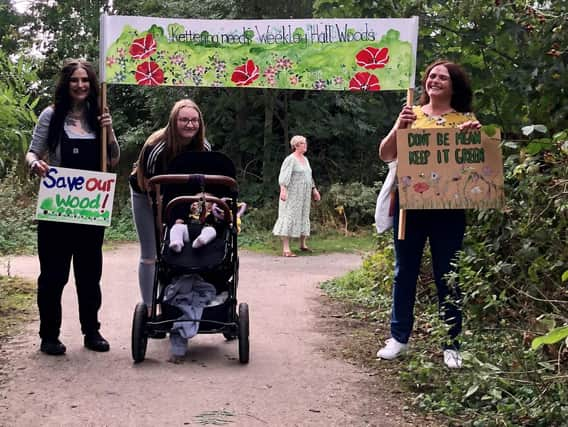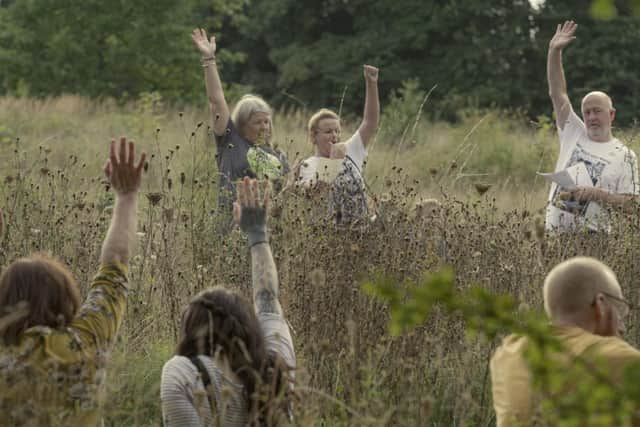More than 100 join walk to show their love for Kettering wood


More than 100 people came together to show their love for Kettering' s Weekley Hall Wood on Saturday afternoon (September 25).
The Great Big Green Walk For Our Wood, organised by the Save Weekley Hall Wood community group to mark Great Big Green Week, saw people walk around the area, listen to songs and stories and have picnics.
Advertisement
Hide AdAdvertisement
Hide AdPart of the wildflower meadow and surrounding area there is on the site of a planning application by Boughton Properties.


The planning application would replace the green open space with five massive warehouses, with campaigners saying it would 'spoil' it for the thousands of people who walk, run and cycle there, and irrevocably destroying the biodiversity of the area.
Many of those at the walk carried banners and placards proclaiming “Wildlife Not Warehouses” and “Hands Off Our Meadow”.
The walk had a community spirit with Grace Siddington bringing campaigners up to date on what they had achieved so far. Tom Oi sang his song specially written for Weekley Hall Wood, a poem by local performance poet, Loz Anstey, was read by Frankie O’Dowd, and John Padwick told the story of the Newton Rebellion.
Advertisement
Hide AdAdvertisement
Hide AdHe said the walk on Saturday echoed the journey of those surviving the Newton Rebellion of 1607 who had to make their way to Boughton House by Michaelmas - which is this coming Wednesday - to sign an apology document so that King James I would pardon them. 1,000 people had gathered at Newton, women, men and children, challenging the right of local landowners, the Treshams, to make a land grab by enclosing common land at Newton. Harvests had been bad - many of those protesting were poverty-stricken and had been using the land for growing crops and grazing their animals. They dug up hedges and filled in ditches to reclaim it. But the King had had enough and ordered his local Deputy Lieutenant, Edward Montagu, to deal with the rebellion, violently if necessary. The local militia refused to come out, so Montagu had to use his own troops. Between 40and 50 people were killed – the ringleaders hanged and quartered and parts of their bodies displayed in local towns as a warning. There is now a memorial stone to those killed in the massacre outside the church at Newton.
John said: “There is parallel - those walking for the woods were again claiming the land from being taken from them, this time by its destruction for warehousing.”